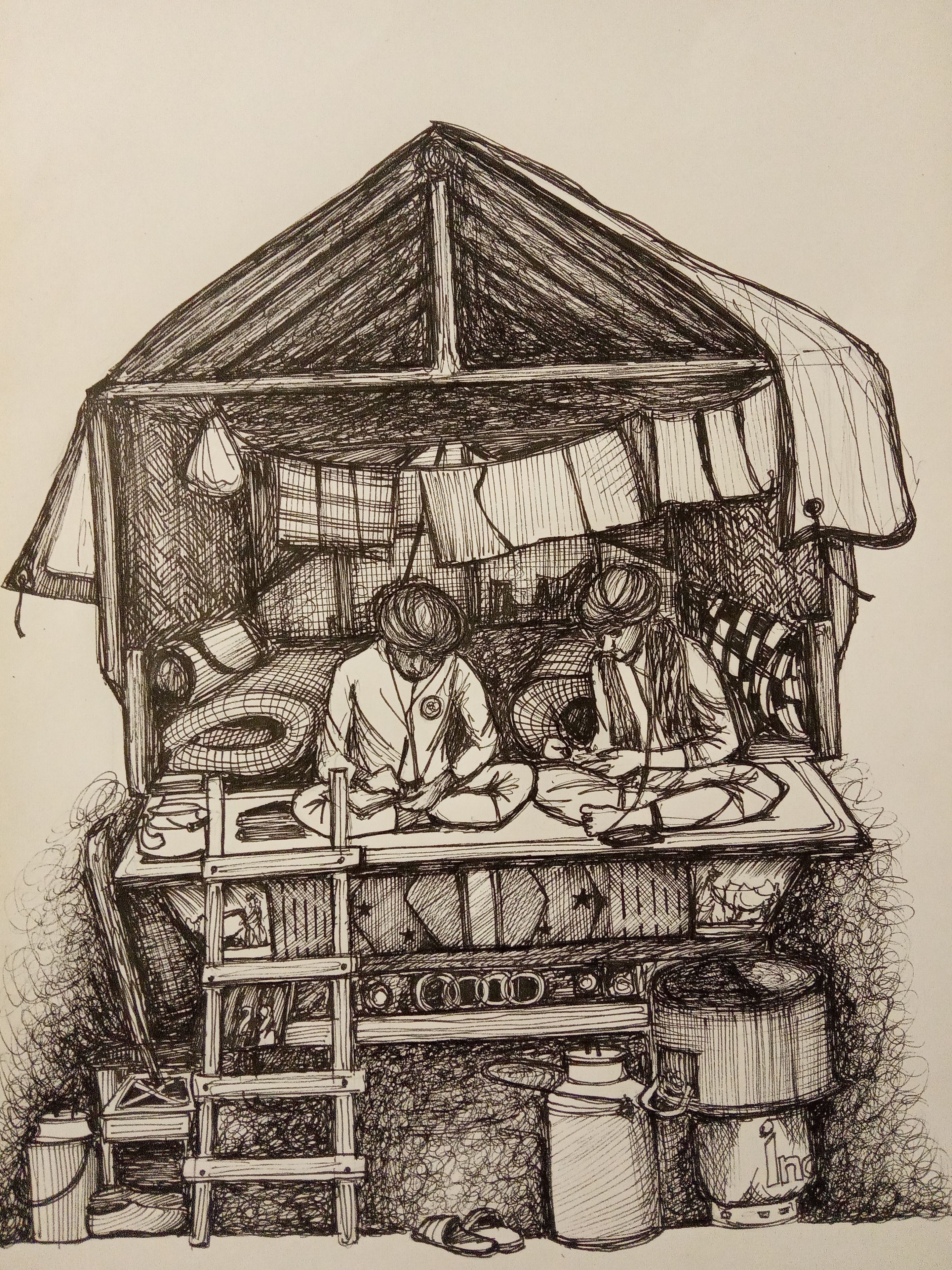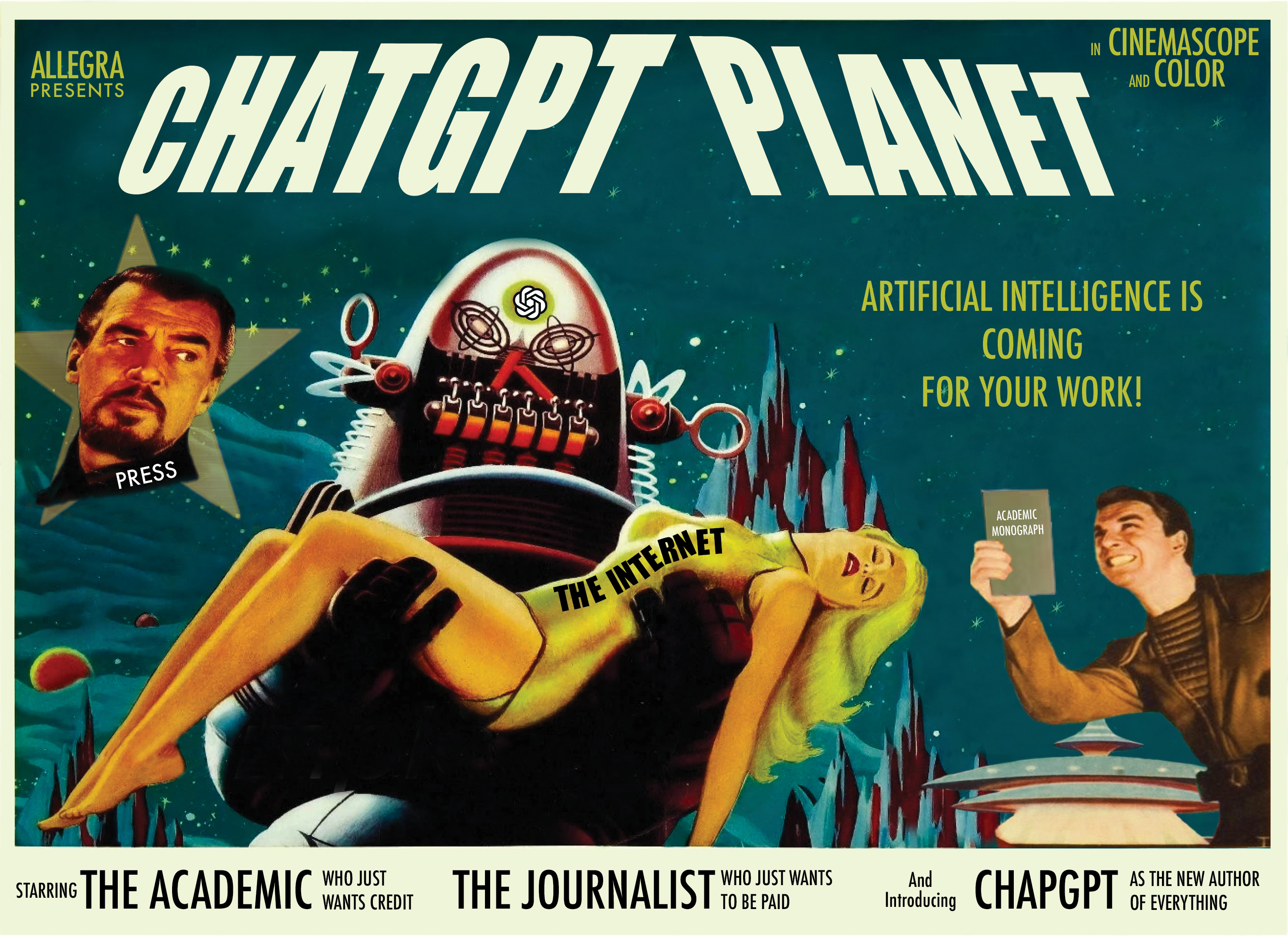This Allegra week we remain in retreat spirits, and will consequently revisit some more ‘Jewel’s of Allie’s Archive’. And what more appropriate theme for doing so than SLOW. We’ll commence with Maggie O’Neill’s reflection on the SLOW University. We first published this text at Allegra in June 2016 as a part of our thematic week.
The time has come to challenge our obsession with doing everything more quickly. — Carl Honoré
My motivation for organising the seminar emerged from dialogue with colleagues and the many resistances to the speeding up of Higher Education, the impact of the audit culture and the ‘marketisation’ of Higher Education; as well as growing discourses for some, on the impossibility of developing a work/life balance in the context of metrics, audit, efficiency, increased competition, demand management of research grant generation and the importance of hitting performance targets for career development and promotion. The gendered dimension of these issues are central to our dialogues.
Professor Luke Martell, Dr Heather Mendick and Dr Ruth Mueller spoke. Matthew Griffiths, a poet based at Durham read from his anthology, How to be Late. At the close of the seminar Chris Watson, IAS Policy & Enterprise Fellow and Sound Artist, led the seminar participants on a SLOW Sound Walk through Durham taking in the sounds of the riverbank.
The seminar was so popular there was a waiting list and we were very pleased that Carl Honoré guru of the SLOW movement attended and participated.
What is SLOW?
In the development of the SLOW movement we find a focus growing over the past decade on the need for a socio-cultural shift towards slowing down the pace of work, life and consumption and providing a counter narrative to processes of globalisation that Hale, Held and Young (2013) write about in ‘Gridlock’. Carl Honoré’s In Praise of Slowness, Geir Bethelsen’s World Institute of Slowness, Christopher Richard’s fictional website, as well as Slow Food, Cittaslow are all examples of change movements towards SLOW. SLOW and the related Transition town movement provide a counter to globalization and bring to the fore a focus upon the environment, urban life, producing and eating local products, environmental policy and sustainability. Artist Dominique Rey urges us to “Do Less, Slowly” in an art project that encourages people to slow down. Rey explored slowing down in her own life through a series of slowness experiments to reach a ‘more reflective way of being’ and created a series of public art billboards.
But where exactly does the contemporary University fit into debates around SLOW?
In Corporate Ethos Reshaping University Culture, Elizabeth Yeoman and John Hoben propose a return to the notion of the university as a self-regulating, democratic learning community and are most concerned that ‘the corporatization of university culture is increasingly being accepted as an inevitable aspect of the new academic “reality,” one which poses some very real dilemmas for various social and intellectual minorities whose interests and work are situated outside of the dominant corporate paradigm’.
But more than this, that ‘such trends seem to obscure the fact that one of the most important pedagogical functions of the university is to create a context in which original thinkers can share and develop ideas and dissenting views can find a place to work their way into an atrophying public sphere’.
Professor Thomas Doherty [Council for the Defence of British Universities] writes that a Higher Education model ‘based on the worship of speed and a bogus efficiency mistaken as “throughput”’ especially in the context of the introduction of student fees ‘diminishes the university and demeans the student’. Doherty writes instead about the need to ground our priorities “in the intellectual work once integral to our institutional identity” and to focus care and attention upon “the communities of knowing that are made possible by the university’s existence.”
So what might a change movement to SLOW look and feel like for the University and Higher Education?
Brian Treanor’s Slow University: A Manifesto, written in the summer of 2007 opens with this professor of Philosophy at Loyola Marymount University in Los Angeles stating: “I find myself with a distressing lack of idle time and, without presuming to speak for others, I believe I am not alone in this respect. Most weeks I do not get a sufficient amount of sleep, much less adequate time for meditation, prayer, idling, and creative absent-mindedness. What’s wrong with this picture? And, more importantly, what can I do to fix it? What Treanor proposed was a commitment to a Slow University movement on his campus and he called for others to join him in the development.
I want a university in which great ideas are given time to mature and ripen rather than being plucked inchoate and rushed off to press in order to guarantee tenure and promotion, where it is more important to say something well than it is to say something fast.
Treanor began by posting ‘slow hours’ in his schedule where he does not write, answer the telephone, respond to emails or attend meetings. “I believe that these slow hours actually result in better contributions here at LMU: better publications; better relationships with students; and better relationships with my colleagues.” See also Jeremy Hunsinger’s article Against Speed Cosmopolitanism towards the slow university promoting the Slow Science Manifesto.
Philosopher and critical theorist Lambert Zuidervaart, writing from Ontario, Canada suggests that the University is at a major crossroads and its location remains unsettled for three major reasons “muddled missions, external pressures, and entrenched patterns”. Zuidervaart laments that instead of “centres within civil society for dialogical learning, critical inquiry, and creative exploration” that make a significant contribution to “human flourishing” consumerist attitudes have taken hold; “institutional costs have soared; and governments have cut back funding”. And politically “governments, which still hold significant purse strings, increasingly demand measurable outcomes, thereby constraining the type of learning permitted or encouraged.”
Zuidervaart suggests it is time to take a different path and he proposes ‘ethical scholarship for the common good’. By this he means “teaching and research that consciously pursue social responsibility and continually orient themselves to the common good, to connection and community”.
Our discussion in seminar one revolved around the experiences of the doctoral researchers, managers and academics present and the issues and tensions that were raised by the speakers:
the inner pressures and affective/relational impact of fast academia; the hopes and fears; the resistance to gladiatorial, competitive cultures and the pressing need to look to the kind of futures we might want – to imagine collectively, democratically what kind of futures are possible.
As Luke Martell said in his presentation, democratic consultation is not fast, but it is one way of ensuring inclusivity and participation in the development of better governance, experience and knowledge production in the University. Carl Honoré concluded discussion by highlighting and defending the importance and usefulness of the term SLOW and the change movements it has heralded.
For the SLOW movement the workplace is a key battlefront. When the job gobbles up so many hours, the time left over for everything else gets squeezed. Even the simple things – taking the kids to school, eating supper, chatting to friends … In a recent international survey at Warwick University and Dartmouth College, 70% of people in twenty seven countries wanted a better work/life balance [And, on the other hand] Of course, speed has a role in the workplace. A deadline can focus the mind and spur us on to perform remarkable feats. The trouble is that many of us are stuck in permanent deadline mode, leaving little time to ease off and recharge. The things that need Slowness – strategic planning, creative thought, building relationships – get lost in the mad dash to keep up, or even just to look busy. (Honoré 2004:182)
It is clear that these lines of thinking, dialogue and creative application are gathering momentum. The purpose of the seminars on the SLOW University at Durham [that will then travel to other collaborating Universities] is to harness these and ask – What does it mean if we take a look at the University in relation to time, speed and SLOW? What new philosophies, practices, structures and governance might emerge? The plan is to grow a network both within and between Universities in the UK and beyond; to engage in inter-disciplinary collaboration and invite artists to join us.
The dialogue that emerges might take us towards answering – What might a radical democratic imaginary for a 21st century University look and feel like and what changes are possible in current times?
SLOW Forward/Outcomes
The first seminar was a collaboration between the School of Applied Social Sciences, the Ustinov Seminar Series and the IAS. The second SLOW University seminar supported by the IAS took place at Durham University on March 11, 2014.
This post is based on a seminar talk that took place on 6 November 2014 at the Institute for Advanced Studies (IAS), Palace Green, Durham University. It was originally published on the blog Celeb Youth, and first published at Allegra on June 29, 2016.








